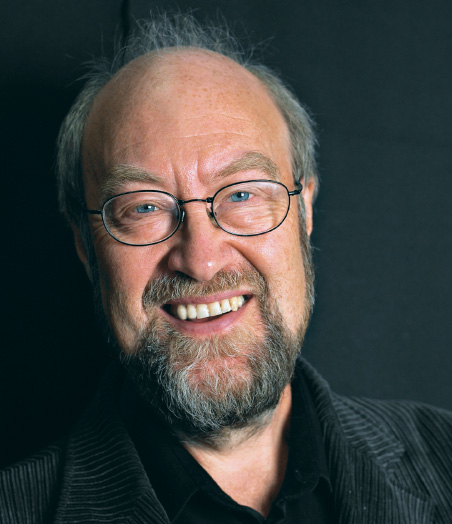Time: Thursday, 3 April 2025, 9:45–11:15
Venue: Aula im. Hrynakowskiego, Collegium Heliodori Święcicki, Grunwaldzka 6
Speaker: Prof. Ernst Håkon Jahr (University of Agder, Kristiansand, Norway)
Workshop: “Historical sociolinguistics: Sociolinguistic development and language planning in Norway and Ukraine – Similarities and differences”
Abstract
In 1814, Norway — with independence after 400 years of Danish rule — had a sociolinguistic situation which was quite ‘normal’ in a European context: a spoken, high-status variety used among the upper-middle classes all over the country was closely connected to a written standard (Danish), and all the non-standard local dialects of the peasants, fishermen and workers had a low status and were used only locally. In Norway today, however, we observe a situation which can be considered unique: the country has two written standards, both of them Norwegian (Bokmål and Nynorsk) but no universally accepted spoken standard comparable to the spoken standard of, say, Swedish and Danish. Instead, most native speakers of Norwegian use their local dialects in most contexts. There exist only small differences between the two written standards, but Norwegians know that the differences between Bokmål and Nynorsk are sociolinguistically important.
Since this situation has been brought about by 150 years of official as well as private language planning, there might be lessons to be learnt from the Norwegian case for language planning in general. Norwegian and Ukrainian have an important historic feature in common: both languages have a long shared history with superstratum languages: Danish (for Norwegian) and Russian (for Ukrainian). Both languages have also been perceived by many (especially Danes and Russians) as merely a dialect (or dialects) of the neighbouring, superstratum language: Spoken Norwegian was seen as a variety of Danish, Ukrainian of Russian. Since language planning has been a major issue in Norwegian society for more than 200 years, there might be lessons to learn from the Norwegian case for current and future language planning in Ukraine with its independence in 1991.
References:
- Jahr, Ernst Håkon. 2014. Language planning as a sociolinguistic experiment: The case of Modern Norwegian [external link]. Edinburgh: Edinburgh University Press.
About the speaker
 Ernst Håkon Jahr is Professor emeritus at University of Agder, Kristiansand, Norway. He was Rector of University of Agder and Dean of the Faculty of Humanities and Education, visiting professor at various universities, including Hamburg and Reading as well as Fulbright research scholar at UCSB. He is the founder of Agder Academy of Sciences and Letters in 2002, and was its President for 17 years and now its honorary member. He is member of 11 academies and learned societies in Norway and abroad. He was knighted by the King of Norway for linguistic research and for founding and building academic institutions. Prof. Jahr has published around 80 books and 250 articles and papers. He presented more than 60 papers at international conferences and was a guest lecturerer at many universities in Europe and America. He founded 3 linguistic journals, 3 book series and one national conference series. His research areas include historical (socio)linguistics, sociolinguistics, language planning, language contact, creolistics, language conflict and history of linguistics.
Ernst Håkon Jahr is Professor emeritus at University of Agder, Kristiansand, Norway. He was Rector of University of Agder and Dean of the Faculty of Humanities and Education, visiting professor at various universities, including Hamburg and Reading as well as Fulbright research scholar at UCSB. He is the founder of Agder Academy of Sciences and Letters in 2002, and was its President for 17 years and now its honorary member. He is member of 11 academies and learned societies in Norway and abroad. He was knighted by the King of Norway for linguistic research and for founding and building academic institutions. Prof. Jahr has published around 80 books and 250 articles and papers. He presented more than 60 papers at international conferences and was a guest lecturerer at many universities in Europe and America. He founded 3 linguistic journals, 3 book series and one national conference series. His research areas include historical (socio)linguistics, sociolinguistics, language planning, language contact, creolistics, language conflict and history of linguistics.
